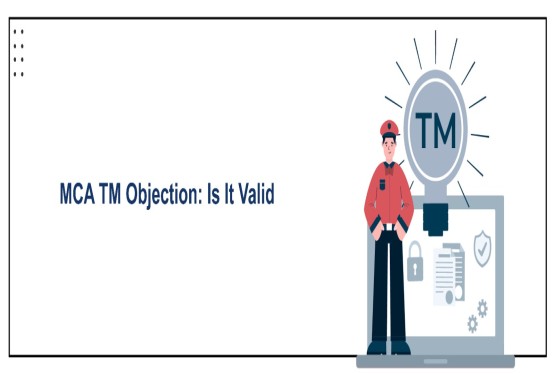As an increasing number of modern firms get ready to go public in 2025, the Indian startup scene is undergoing a transformation. Businesses are actively planning or submitting applications for initial public offerings (IPOs) in sectors like fintech, e-commerce, logistics, SaaS, and consumer technology due to increased investor confidence, better corporate governance, and a focus on profitability. This rise is not coincidental; it represents a normal progression in the startup lifecycle, where companies (like; Private, LLP, and OPC Company) have grown via numerous fundraising rounds and are now looking to list in order to raise long-term funding, provide investor exits, and build public confidence. Strong market performance in the preceding year, when tech IPOs produced outstanding returns, established a precedent for the future and fueled the momentum. More and more, public listings are viewed as a strategic maneuver that fosters transparency, unlocks value, and expands the investor base rather than merely as a financial achievement. This wave of startup IPOs heralds a new era for the Indian capital market, in which innovative companies take the lead in defining the equity environment.
To Learn more about SME IPO Listing.
2024 IPO Trends That Set the Foundation
In terms of public market engagement, 2024 marked a turning point for India's startup environment. The market for startup-led initial public offerings (IPOs) picked up steam after a cautious post-pandemic rebound, and many high-growth firms debuted on the stock markets. These listings' success both in terms of money raised and post-listing performance was instrumental in rebuilding investor trust in the startup asset class. Several of the businesses that went public in 2024 had shown a clear path to profitability, strong revenue models, and better unit economics. This represented a break from prior years, when the value of a startup was frequently based on its future promise rather than its established business principles. This change was welcomed by investors, who gave high marks to companies that demonstrated sustainable growth and organizational rigor. The regulatory landscape also improved, with simpler compliance processes, faster approval timelines, and clearer disclosure requirements. This, combined with significant retail investor and domestic mutual fund participation, established a positive IPO environment that set the stage for the anticipated boom in 2025. Not only have the lessons learned from 2024 increased the standard for startups hoping to go public, but they have also promoted more transparency and governance throughout the sector. This growing maturity is what establishes the framework for the upcoming wave of startup-led public listings in India.
Tracking the Startup IPO Pipeline in 2025
The pipeline for startup IPOs has become more organized and transparent than ever as India's capital markets get ready for an increase in public listings. Companies are currently at various phases of the IPO process, including internal assessments, onboarding merchant bankers, and submitting draft red herring prospectuses (DRHPs) to regulatory bodies. Valuable information about the health and readiness of India's startup industry is provided by this developing pipeline. Companies formerly reliant only on venture capitalists are now considering IPOs as a way to increase market exposure and reputation while also securing sustainable, long-term funding. The pipeline comprises companies from a wide range of sectors, such as logistics, consumer goods, enterprise software, e-commerce, and financial technology. While some companies are already far along in the process of submitting their filings, others have previously submitted confidential information to regulators. Additionally, some businesses have obtained regulatory clearances and are now waiting for the market to be in a position to release their concerns. The procedure demonstrates improved compliance standards, consistent financial reporting, and operational maturity, reflecting not only ambition but also preparedness. This IPO pipeline allows market participants, investors, and stakeholders to monitor the progress of startups, which aids in predicting future offerings and making wise judgments. It also suggests a more profound change: from independent valuations determined by venture capital to public market accountability determined by actual performance and investor expectations.
Startups Poised for IPO in 2025
With the public markets gaining steam, several Indian companies are actively getting ready for a 2025 IPO. These businesses, which come from a variety of industries, all share the same goal: using the stock market to support expansion, compensate early investors, and establish lasting institutional reputation. Some of the biggest names in the pipeline have already gained significant market traction, supported by robust financials and consistent user expansion. These include businesses in the fields of e-commerce, financial services, logistics, digital payments, and business technology. Various businesses have signaled their desire to list within the current financial year by either submitting draft prospectuses or submitting confidential filings to regulatory bodies.
Notable instances are a thriving e-commerce market renowned for its low cost structure and extensive network of sellers; a digital wealth management platform with a strong presence in Tier-II and Tier-III cities; and a logistics technology company that has extended its reach across industries, including B2B fulfilment and D2C delivery. Over the past several years, these companies have made notable gains in customer acquisition metrics, operational efficiency, and revenue generation. The maturity of the whole group is notable in addition to individual businesses. These firms are now concentrating on governance, compliance, internal audits, and profitability, all of which are necessary conditions for a good initial public offering (IPO). To help them navigate the intricate listing procedure, they are also consulting with top investment banks, legal counsel, and auditors. The increasing number of companies preparing for an IPO reflects not only the aspirations of India's digital economy but also a higher degree of discipline and confidence in the public markets.
Confidential Filings and Strategic Market Entries
The increasing use of confidential submissions by high-growth firms is a significant trend in the 2025 IPO environment. With this approach, businesses can start the IPO procedure in private by submitting draft documents to regulatory agencies without making them available to the public in the first few weeks. It allows firms to refine their financial disclosures, valuation methods, and internal compliance procedures away from the public eye and market forces. Businesses that select this path are often well along in their operational development. Several of them have experienced strong year-over-year revenue growth, reduced their losses, and even become profitable. These businesses are also concentrating on lowering customer acquisition costs, boosting margins, and increasing retention all important factors that investors in the public market pay attention to. Additionally, the choice to submit in secret indicates a cautious but deliberate strategy. It gives you the opportunity to monitor market mood, improve your timing, and modify the framework of your offer as needed. It sometimes acts as a gauge of investor interest during pre-roadshow discussions with major institutions.
Recent secret filings indicate that companies are focusing on a wide range of investors, such as strategic partners, pension funds, domestic mutual funds, and foreign institutional investors. In addition to seeking capital for expansion, many of these businesses are also seeking to offer partial exits to early-stage venture capital investors and ESOP owners. The changing mentality of Indian startups from a growth-at-all-costs tale to one centered on sustainable value generation and long-term accountability is highlighted by this calculated entrance into the public market.
Rising Sectors Driving the IPO Pipeline
The variety of industries represented in the 2025 IPO pipeline demonstrates the depth and breadth of innovation in the Indian startup environment. The kinds of companies moving towards public markets have changed dramatically, suggesting a more mature entrepreneurial climate, even if technology is still a key topic.
Online marketplaces and e-commerce
The IPO market is still dominated by companies in this industry, especially those with low cost structures, robust last-mile logistics integration, and large seller or product bases. Investors seeking scalable consumer platforms have found them appealing because of their capacity to access Tier-II and Tier-III cities.
Digital Lending and Fintech
Fintech businesses, which run the gamut from wealth management platforms to digital lenders, are getting ready to go public as a result of the drive for financial inclusion and digital payments. They are well positioned to compete in the IPO market because of their emphasis on regulatory compliance, safe transaction systems, and user-friendly interfaces.
Technology for Logistics and Supply Chains
Logistics-tech businesses have become crucial since they form the backbone of the e-commerce delivery and D2C surge. There is significant investor interest in companies that provide comprehensive supply chain solutions, warehouse automation, and AI-driven routing.
Business Technology and SaaS
Software-as-a-Service firms that serve organizations in India and throughout the world are growing at a rapid rate. Their capital efficiency, high customer retention, and subscription-based models make them especially well-suited for public markets.
Direct-to-Consumer Brands and the Consumer Internet
Digital-first, direct-to-consumer (D2C) strategies, high brand awareness, and new-age consumer brands are gaining popularity. Numerous of these firms have cultivated devoted clientele through specialized goods and effective online distribution channels.
The appearance of these industries in the IPO pipeline indicates a shift away from conventional, tech-exclusive narratives toward more all-encompassing, sector-agnostic expansion stories. Additionally, it demonstrates how Indian firms are addressing real-world challenges on a large scale, making them more appealing to public investors.
Important Factors Fueling the IPO Boom in 2025
The increase in IPO activity among startups in 2025 is no accident; rather, it is the outcome of numerous confluence events that have altered the supply and demand dynamics of the Indian capital markets. The combination of financial, regulatory, and market-driven factors that are creating a positive listing climate are responsible for this renewed impetus.
-
Move Towards Sustainability and Profitability Businesses that previously prioritized rapid expansion over bottom-line performance are now meeting the expectations of the public markets. Businesses that exhibit steady sales, expanding EBITDA margins, and prudent capital deployment are being rewarded by investors. In both financial and operational aspects, this shift in mentality has prepared more businesses to go public.
-
Improved Regulatory Framework With simpler approval timetables and more transparent disclosure norms, the listing procedure has become more transparent and predictable. Additionally, regulatory authorities have promoted higher compliance standards, urging entrepreneurs to implement strong internal governance structures long before they go public.
-
Expanding the Domestic Capital Base India's expanding base of retail and institutional investors, including mutual funds, pension funds, and alternative investment funds, is giving entrepreneurs solid local support. The demand for a wider range of high-growth investment options has increased with growing financial literacy and engagement in stocks.
-
Worldwide investor interest in developing economies Indian businesses are attracting more attention from global investors as a result of geopolitical changes and the pursuit of alternative growth markets. From a cross-border perspective, India is still a desirable place to list due to its robust economy, growing digital infrastructure, and vast consumer market.
-
Enhanced Advisory Assistance and IPO Execution Investment bankers, attorneys, auditors, and investor relations companies are now part of a more sophisticated ecosystem of advisors that startups can utilize to get strategic guidance at every stage of the IPO process. This has greatly decreased the execution risk associated with going public. These elements have collectively contributed to a favorable atmosphere in which entrepreneurs are not only eager to list their companies but also better prepared to satisfy the strict requirements of the public markets.
"Investor Sentiment and Market Readiness"
Due to greater macroeconomic stability, steady business earnings, and the outstanding performance of earlier startup IPOs, investor confidence in 2025 is considerably higher than in previous years. Tech-enabled firms that demonstrate profitability, scalability, and sound governance practices are becoming increasingly popular among both retail and institutional investors. The move from speculative excitement to value-driven analysis is one of the most important shifts in investor behaviour. Public market investors are now more selective, giving more weight to fundamentals like revenue growth, cash flow stability, and sustainable margins over inflated private valuations. In order to concentrate on long-term performance rather than momentary buzz, this has pushed firms to rethink their strategies. Additionally, the success of previous listings has established a virtuous circle. Well-performing companies that went public in 2024 have increased faith in the market's capacity to integrate new, digital-first enterprises. This has not only increased participation from family offices and domestic mutual funds, but it has also drawn foreign institutional investors looking to invest in India's booming startup market. The market's readiness is further demonstrated by the large number of companies headed for an IPO that are actively interacting with anchor investors, holding pre-marketing roadshows, and finalizing offer structures that strike a balance between diluting the promoter and satisfying investor demand. Generally speaking, the combination of a positive market environment and investor maturity is paving the way for a successful wave of public offerings, solidifying startups as a dominant force in India's capital markets.
Challenges and Regulatory Developments
Despite the enthusiasm surrounding startup IPOs in 2025, there are still hurdles to overcome before going public. Although there is increasing investor interest and a favorable market for startups, they must contend with a complicated regulatory environment, compliance standards, and shifting investor attention.
-
Strict disclosure and governance standards Companies getting ready to go public are subject to extensive disclosure rules, which cover information on past financials, risk factors, promoters, and corporate governance structures. This amount of transparency is both difficult and time-consuming for many businesses, particularly those accustomed to raising money through private rounds.
-
Market Realism and Valuation Corrections A major obstacle is reconciling private market valuations with those of the public markets. Sometimes, businesses that had high values during fundraising rounds are under pressure to support those figures in the public market. In order to guarantee successful subscriptions, this has resulted in a recalibration of pricing strategies, with many businesses choosing conservative valuations.
-
Regulatory Oversight of Profitability and Sustainability The sustainability of businesses is becoming a major concern for investors and regulators alike. It may be challenging for firms with significant cash burn, erratic revenue streams, or unclear monetization models to get regulatory clearance or investor confidence. A crucial factor for being ready for an IPO is now profitability, or at least a clear route to it.
-
Audit preparedness and internal controls The listing procedure calls for strong internal controls, audited finances, and board independence, all areas where many firms have traditionally failed. Meeting regulatory requirements in these areas takes time and usually involves hiring knowledgeable CFOs, legal counsels, and audit committees.
-
Dangers of Market Timing and Volatility The timing of an IPO might be impacted by external variables such as geopolitical events, interest rate changes, or shifts in market sentiment. The unpredictability of the capital markets is demonstrated by the fact that even well-prepared firms may opt to postpone their listings in the event of unfavourable circumstances.
-
The regulatory bodies have taken proactive steps to simplify procedures and increase startup participation in public markets despite these obstacles. The environment is improving, with shorter review schedules and more lenient listing standards for smaller issues, but only if companies are prepared to change and align with long-term market expectations.
In closing
The surge of startup IPOs in 2025 represents an important transformation in India's entrepreneurial and capital market environment. Formerly dominated by conventional industries, this sector is now being transformed by creative enterprises that have developed through years of growth, investor support, and market learning. Startups are now actively planning for entering the public domain, motivated by a commitment to transparency, profitability, and long-term value creation, rather than being afraid to do so. The institutionalization of India's startup ecosystem is reflected in this evolution, which represents more than simply a financial achievement. By embracing more strong corporate governance, adhering to stringent regulatory frameworks, and interacting more responsibly with investors, businesses are establishing new standards for accountability and sustainable growth. This wave of listings provides the larger market the chance to diversify portfolios, benefit from India's digital development narrative, and advance greater financial inclusion.
It gives startups the opportunity to grow sustainably, raise funding more effectively, and gain the confidence of the general public. The success of these IPOs in the future will depend on fundamentals, resilience, and adaptability in addition to timing and valuations. India's startups are poised to shape the next ten years of economic transformation if they strike the right balance between ambition and discipline, paving the way for them to become long-lasting public businesses.










































































_crop10_thumb.jpg)


































































_crop10_thumb.jpg)
_crop10_thumb.jpg)



_crop10_thumb.jpg)


_crop10_thumb.jpg)





_crop10_thumb.jpg)

_crop10_thumb.jpg)














-suratgujarat-section-158_crop10_thumb.jpg)
-suratgujarat_crop10_thumb.jpg)
-(33)_crop10_thumb.jpg)



-ahmedabad_crop10_thumb.jpg)
-learn_crop10_thumb.jpg)

-learnn_crop10_thumb.jpg)



























































_crop10_thumb.jpg)























_Guidelines_learn_crop10_thumb.jpg)























_learn_crop10_thumb.jpg)
_crop10_thumb.jpeg)










_crop10_thumb.jpg)




_Second_Amendment_Rules,_2025_learn_crop10_thumb.jpg)







_learn_crop10_thumb.jpg)












































_learn_crop10_thumb.jpeg)























_learn_crop10_thumb.jpg)



_rd_roc_learn_crop10_thumb.jpg)
















_learn_crop10_thumb.jpg)














_learn_crop10_thumb.jpg)
_Learn_crop10_thumb.jpg)











































_learn_crop10_thumb.jpg)




_learn_crop10_thumb.jpg)













_crop10_thumb.jpeg)




















